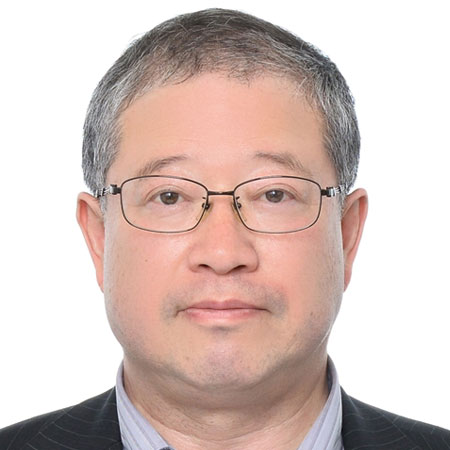Novumcella Building Exosome Expertise In Inflammatory Disorders
Executive Summary
Tokyo-based Novumcella Inc. is progressing several still preclinical stage assets derived from academic research, with a focus on the intractable inflammatory disease area, and is looking to secure new financing and partners as it considers an IPO down the road.
Novumcella Inc. is looking to progress several early stage assets in the regenerative medicine field, which it aims to partner after clinical proof of concept, with an eye on a possible initial public offering in a few years’ time.
Established in August 2016 with a mix of funding from founders, angel investors, and friends and family, the Tokyo-based venture has three pipeline projects, all sourced from academic research by Masaaki Ii of the Osaka Medical University Research Support Center.
“Novumcella has licensed exclusive related intellectual property rights from the university, with which we have a joint development agreement. We plan to start clinical trials next year for our asset for systemic scleroderma,” founder, president and CEO Yasuyuki Kusuhara told Scrip in an interview.
The executive has a background in big pharma, having 11 years’ experience in non-clinical and clinical development at then Upjohn in Japan after graduating from Nagoya City University’s school of pharmaceutical sciences. He has other experience from a large contract research organization in regulatory consultation to expedite product development for major foreign firms, and was a chief clinical officer at another bioventure.
Lead Sclerosis Asset
This lead project for sclerosis combines simvastatin-containing polylactic co-glycolic acid (PLGA) nanoparticles and mouse adipose-derived stem cells. Work conducted mainly at the university has shown promising results in terms of reversion of dermal thickness to normal levels.
Novumcella At A Glance
Founding Date: August 2016
Location: Shimbashi, Tokyo
R&D Focus: Regenerative medicines
Financing To Date: Capital of JPY42.7m
Main Investors: CEO, angels, friends and family
CEO And Founder: Yasuyuki Kusuhara
Employees: Four full-time employees plus external directors and advisors
The systemic (as opposed to localized) form of scleroderma is characterized by fibrosis and vascular endothelial disorders in organs throughout the body, rather than just the skin. The disease is treated with a combination of steroids, proton pump inhibitors, cyclophosphamide, ACE inhibitors and other drugs, and is designated an intractable orphan disorder in Japan.
“We are exploring doing a trial in around 10 patients in Japan, and also looking at five other potential indications. The system of conditional approvals [on the condition of comprehensive post-marketing surveillance] may allow us to get early access,” Kusuhara said.
Novumcella also is looking at research into exosomes (extracellular vesicles), building on Ii’s research showing that growth factor gene expression (including for VEGF-A, FGF2 and HGF) is observed in exosomes secreted from polymer E2NP (estradiol) and and SimNP (simvastatin) nanoparticles conjugated with adipose-derived stem cells.
Topical application would activate fibroblasts and promote angiogenesis and collagen production, helping to regenerate the skin. This could be used in the repair of epidermal damage, for example, from severe burns or intractable ulcers.
Rounding out the pipeline is another exosome project, based around a similar platform to that for the simvastatin nanoparticles in skin regeneration, but this time with potential applications in hair root regeneration and hair growth in alopecia related to cancer treatment. Preclinical results have again been promising, Kusuhara said.
“We are also looking at possible deals with cosmetics companies around applications of the exosome technology to promote hair growth and revive skin. The exosome area in general seems to be of interest, and some US ventures focusing on the area have received good funding,” the CEO noted. (Also see "Hijacking The Messenger" - In Vivo, 3 Apr, 2019.)
Funding Challenges
When asked about the biggest challenge facing bioventures in Japan, Kusuhara was not hesitant. “Funding is our biggest obstacle, and for similar companies in general in Japan. In the US, there is a well-developed ecosystem and good funding, but in Japan venture capital is very conservative,” he observed. Echoing sentiments expressed by many other bioventures in the country, he noted that investors are often unwilling to invest larger sums and want an early exit through a rapid IPO or acquisition. On the positive side, he pointed to capital support measures being developed by the Tokyo Metropolitan Government, saying that while these will take time to set up, the situation will become more like the US “in around five years.”
On the policy and regulatory side, Japan’s systems are highly supportive of regenerative medicines, he added, pointing to rapid reviews and conditional approvals for what has been designated a national flagship technology.
Novumcella’s general approach to partnering is to seek deals with global big pharma upon clinical proof-of-concept. “We have quite a global outlook and have a plan for this.
Looking Ahead
Kusuhara told Scrip that Novumcella is seeking funding at present, and has already received JPY30m from a venture capital firm. “We are currently in discussions with a generic company in Japan over funding. This sector is growing fast in Japan and currently has a lot of available cash for investment.”
Looking a little further ahead, the CEO said that Novumcella is at present thinking about a possible IPO in Japan in 2022, or alternatively a potential acquisition by a pharma or biotech company.
In the meantime, the venture will continue to collect good research seeds, mainly from the academic sector. Depending on financing, Kusuhara is also looking to potential collaboration with the Translational Research Center for Medical Innovation (TRI) in Kobe, Japan, possibly in myocardial regeneration.
While there are few problems gaining access to university research in Japan - helped by academic technology licensing organizations – “professors do sometimes want [licensees] to focus on their project,” he noted.

